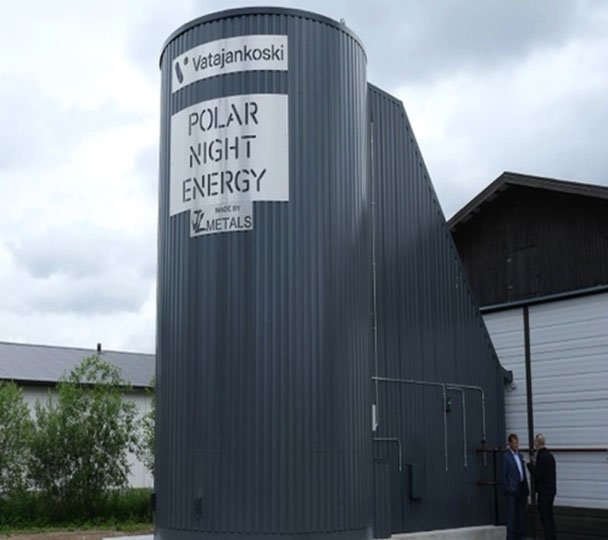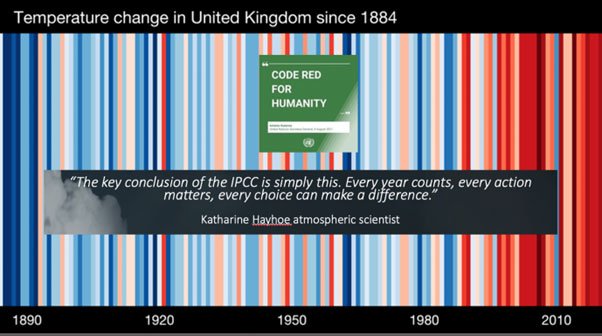The UK is now over half way through its Presidency of COP26, so post Glasgow, how are we doing?
Following the emotional closing stages of the Conference of the Parties in Glasgow (COP26 November 2021) and the many hard-won promises and pledges achieved, then what progress has been made? To answer this question then, let’s remind ourselves of what progress was made at COP26:
‘Before the Paris agreement was signed in 2015, the world was on track for 6C of warming.
After Paris, that came down to 4C.
The pledges submitted in the run-up to the Glasgow Cop took that down to 2.7C, and over the fortnight of the summit fell again to 2.4C.
Crucially, if (and it is a big if) all the net zero pledges made this year are also enacted, we will be on track for 1.8C.
If China, the world's biggest emitter, starts improving its climate performance (it barely budged an inch in Glasgow), it will make a huge difference.
Suddenly "keeping 1.5C alive" does not seem far out of reach.’ Published by the Times Environment
For many involved in the sustainability industries and following the climate crisis closely, myself included, then progress at COP26 was never going to deliver what we would have liked or indeed what was needed. Still, in fairness, it did exceed most of our expectations. There was definitely an air of optimism fuelled by a global political rhetoric of a post covid future in which the world would be building back better and building back greener. Unfortunately, this momentum has faltered as the energy and cost of living crisis has unfolded along with the war in Ukraine. So, as we enter the second half of 2022, this optimism has waned, and it definitely feels like a case of two steps forward and one step back in the fight against climate change.
@theguardian
Two steps forward and cause for genuine optimism can be seen in the pace of innovation, investment and adoption in/of renewable technologies. Every day exciting new technologies and solutions are coming to the fore, whether it's sand and salt batteries for storing excess renewable energy, the rapid switch to and uptake of EVs, renewable tide power, increasing output and reducing costs of Solar Panels, amazing rewilding projects, commitments to end single-use plastics and many more like them. Closer to home then, the Department for Education published their Sustainability and Climate Strategy in April, and this sets out a clear sustainability pathway for all schools and support for all schools to have an Action Plan in place by 2025.
© polarnightenergy.fi
However, to counter this with at least one step backwards, then the political leadership and momentum evident in the immediate aftermath of Glasgow has floundered on the twin rocks of the energy and cost of living crisis. This has seen much slower progress than was promised at COP26 and, in some cases and even worse, backtracking by many countries on their commitments and pledges. It has also seen a misguided and dangerous political rush in the name of energy security, to invest in and sign off on more fossil fuel extraction/exploration, exactly at the time when we should be ceasing all future activities. It is also, therefore, doubly depressing and disappointing that the UK, as the current President of COP, should be suffering such a lack of leadership and commitment, as demonstrated by all the candidates in the current conservative party leadership elections.
@theguardian
So you have to conclude that as our politicians fiddle, Rome burns (literally)! This week alone has seen a climate-induced heatwave with fires raging in Yorkshire, across Dorset, Salisbury plain, Portugal, Greece, California and even on a London railway bridge. It seems to me that our political systems and our politicians on their own can only ever respond to and focus on the short term and so how bad does it need to get before they will act? Whilst we wait for the uncomfortable answer to this question, then surely it is incumbent on all of us to take personal responsibility, make the changes that need to be made in our day-to-day lives and demand more from our political leaders to keep Climate Change top of their priorities, no matter what!
For all involved in education then, I also believe that there is an extra burden and responsibility to demonstrate the climate leadership and action to our young people that is so lacking from our politicians.






